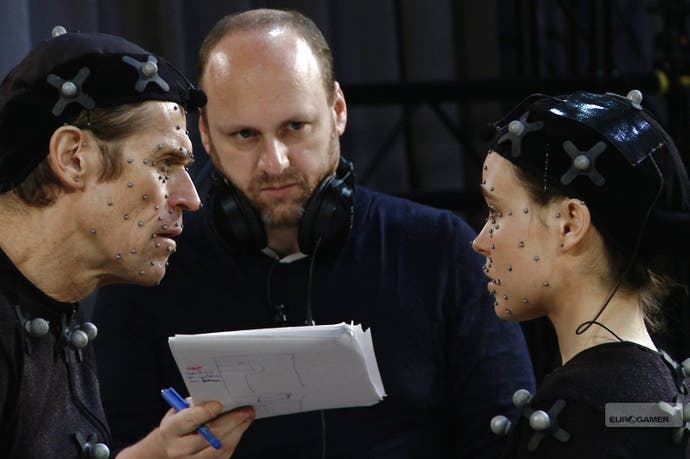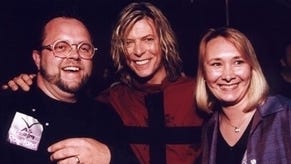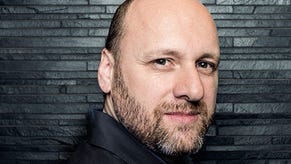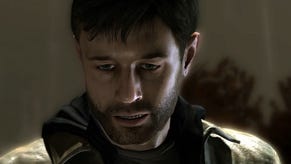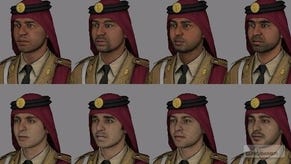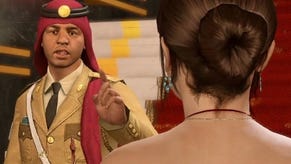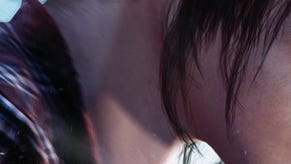Quantic Dream: In pursuit of, and setting, a Hollywood precedent
"This performance is going to change people's and gamers' perception of how a character needs to behave in a video game."
The Hollywood difference in Beyond: Two Souls, which stars Ellen Page and Willem Dafoe, will be "striking", Quantic Dream's Guillaume de Fondaumiere believes.
"This performance is going to change people's and gamers' perception of how a character needs to behave in a video game," he told me in Poland at the Digital Dragons event.
"Probably, when people will see Beyond - other studios - they will want to have a great talent in their games, too, because we're going to see a difference, and it's going to be striking."
One doesn't simply, however, pluck names like Ellen Page and Willem Dafoe out of a hat. The process all begins with David Cage and a printer.
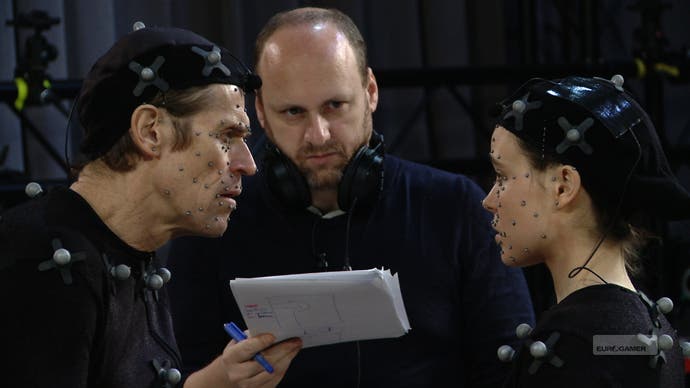
"Actually when David starts writing scripts he always has - is printing out - pictures of known actors and actresses. He puts them there [on a wall] and it usually works as an inspiration for his characters," Fondaumiere explained.
David Cage only had Ellen Page's picture on the wall when he was writing Beyond: Two Souls. What if she said no? "That would have been problematic I think!" he laughed.
"The thing is that we contacted Ellen very early on. Quite rapidly we thought we need to start the casting very early on because it's not going to be simple to find the actress that we're looking for" - someone vulnerable and soft but also someone hard.
"The initial list that we did was relatively short, but David started nonetheless, we didn't wait to have a full cast and confirmation from all actors for him to write. So he started to write, having Ellen Page in mind for the role of Jodie Holmes, already at that time also writing with having Willem Dafoe in mind for Professor Dawkins - this is why it's a really similar path that went on for both of them.
"Then I contacted their agents first, and managers, and got to talk to them."
He'd already sent them a treatment and synopsis of the game, as well as an explanation about the process Quantic Dream was going to use to capture their performances. He sent them the impressive Kara short film as a demonstration of the PlayStation 3 technology and what it was, and wasn't, capable of. "And very rapidly they accepted the challenge."
"I've had doors slammed at me many times."
Guillaume de Fondaumiere
It wasn't always this easy, though, and Guillaume de Fondaumiere has been lobbying Hollywood for "many, many years" trying to get top film talent involved in games. He shared, in a separate talk at Digital Dragons, his experience of meeting actor Leonardo Di Caprio in 2004, who was interested in games, but couldn't get involved because his image and the image of games clashed.
"I've had doors slammed at me many times," he told me, "because most of the time people say, 'We don't do video games - video games are about violence, addiction.'"
The real turning point for Quantic Dream was Heavy Rain, a big-bucks PlayStation 3 exclusive given a high profile by its patron, Sony. The game embodied the film-like, emotional, story-thick and relatively-not-bothered-about-combat approach of the studio.
"Having produced Heavy Rain, and being able to show it to people, to show them that we were doing different experience, more a form of cultural expression - that opened the doors," he said. "And when I contacted the agents for collaboration [with] Willem and Ellen, it was relatively easy, because people had seen Hollywood in Heavy Rain, they had either played it or heard of it, so it made it much simpler for me than years before."
Talent like Ellen Page and Willem Dafoe obviously doesn't come cheap, although the price, said Fondaumiere, "wasn't unreasonable".
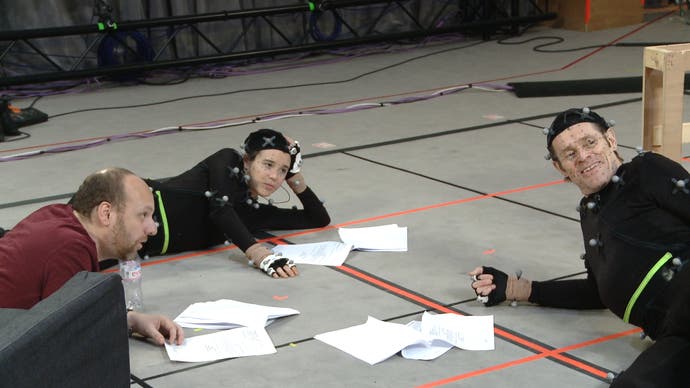
"The Hollywood price tag: it's the talent price tag," he shrugged. "We're used to, in games in general, the more you work with talented people and experienced people, the more you have to pay for them. It's the same for any creative artists that work on a project. It wasn't unreasonable.
"Is anyone going to buy Beyond only because there is Ellen Page and Willem Dafoe? I don't think so, and that wasn't a thought. The thought, and the reason why we decided to work with them, again, was a creative choice, and the fact that we felt we needed to have their level of performance, their level of talent, to be able to convey the emotional level we were looking for.
"This is going to hopefully draw people to games, and we can broaden the audience of games because of that performance. It's a slightly different approach: it's not really a marketing approach, it's a creative one that has marketing implications.
"Of course, having Ellen Page and Willem Dafoe on the cover is going to draw attention, but it's not - there's been talent attached to video games before, but the fact that they were only most of the time lending their voice or lending their face without much creative input, it didn't make the difference. We are going to prove that we can make a difference by having the entire performance, and that's what we're looking for."
There was one awkward moment during all of this, after Quantic Dream had named Ellen Page as Jodie Holmes. It was Sony's talented Naughty Dog studio (Uncharted) revealing a character in The Last of Us that looked remarkably like Ellen Page as well.
"...they had to slightly change the model such that she wouldn't look like Ellen Page because, indeed, we have Ellen Page."
"For us it wasn't too much of an issue because we knew we were working with Ellen Page," reflected Fondaumiere, "so it was then a problem on the side of Naughty Dog to change the model, I guess. I don't think that they were really working on the Ellen Page character; I think they had a similar intention, in the sense that they were probably also looking for a character that was both fragile and strong.
"They probably inadvertently were inspired by Ellen Page, but indeed, they had to slightly change the model such that she wouldn't look like Ellen Page because, indeed, we have Ellen Page," he smiled.
He hasn't talked to Naughty Dog about it since. "No," he said, "it was something that was clarified, I would say, very early on and there was no reason to talk about it afterwards."
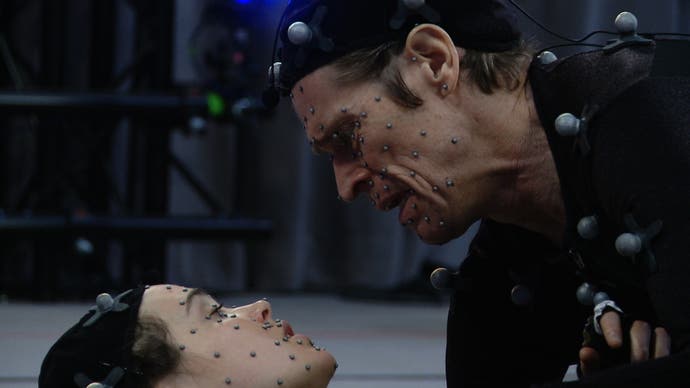
The fruits of Willem Dafoe's and Ellen Page's endeavours, though promising, we'll reserve judgement on until October when Beyond: Two Souls is released (as only a PS3 game for the time being). Of Willem Dafoe's involvement, Fondaumiere said he "came to work with us with the same youthful interest of discovering something [new]". He was apparently "very intrigued" by motion capture and how he would be portrayed. "They're pioneers," these kinds of actors, Fondaumiere declared, "and that's great."
It doesn't sound like there were any Christian Bale-like tantrums, unfortunately. "Not really!" he remarked, dashing my hopes of a scoop.
An hour's worth of content from Beyond: Two Souls will be streamed at the Tribeca Films Festival this weekend in New York, which demonstrates the kind of high profile media-straddling effect a game such as this can achieve. Whether it will really set a precedent for the rest of the games industry remains to be seen. I can say, however, that it has set a Hollywood precedent for Quantic Dream.
"Of course we don't see ourselves going backwards on this," he said of securing Hollywood talent for future Quantic Dream games. Not that it should be a struggle, not with Heavy Rain and Beyond: Two Souls in the portfolio, not with a new console to work on that's capable of scaling new heights in character performance.
Quantic Dream has been working on a PS4 game idea since the middle of 2012, so, the question went, are there pictures already on David Cage's wall?
"Of course," smiled Guillaume de Fondaumiere. "We have a lot of pictures on our wall right now."
